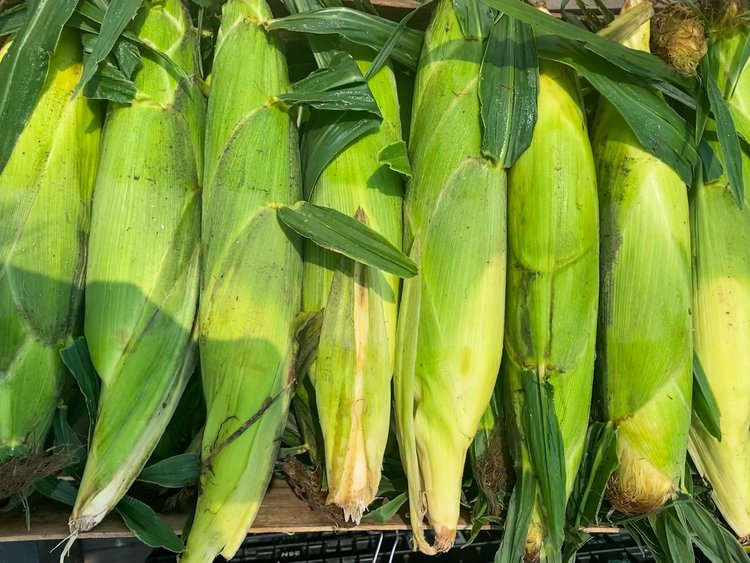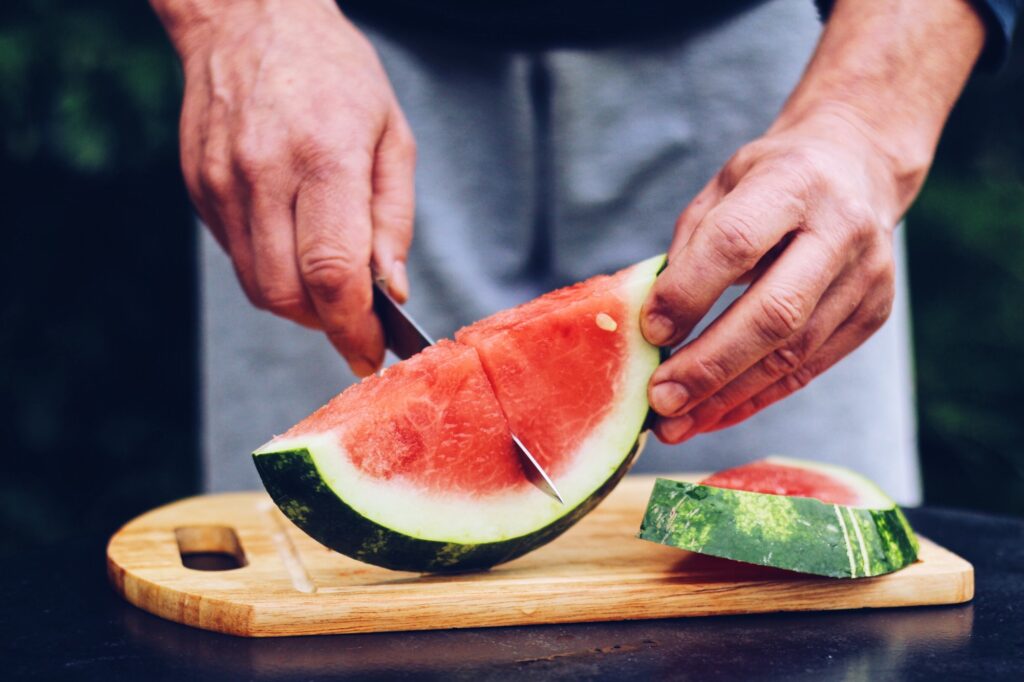Sweet corn, a staple in many diets around the world, is often celebrated for its sweetness and versatility in the kitchen. But beyond its delicious taste, sweet corn is a powerhouse of nutrition that offers a wide array of health benefits. In this blog post, we’ll delve deep into the nutritional profile of sweet corn, exploring its vitamins, minerals, fiber content, and more. By the end, you’ll understand why this humble grain deserves a place in your diet.
What is Sweet Corn?
Sweet corn (Zea mays convar. saccharata var. rugosa) is a variety of maize with a high sugar content. Unlike field corn, which is harvested when fully mature and used for animal feed or processed products, sweet corn is harvested while the kernels are still in their milky stage, making it tender and sweet.
Sweet corn can be consumed fresh, canned, or frozen, and it’s commonly grilled, boiled, steamed, or roasted. Its naturally sweet flavor and satisfying texture make it a favorite in dishes ranging from salads to soups and casseroles.
Nutritional Profile of Sweet Corn
Macronutrients
- Calories: A 1-cup serving of sweet corn (about 150 grams) contains approximately 125 calories, making it a moderate-calorie food that fits well into most diets.
- Carbohydrates: Sweet corn is a carbohydrate-rich food, with around 27 grams of carbs per serving. These carbs are primarily complex carbohydrates, providing a steady source of energy.
- Protein: With about 5 grams of protein per cup, sweet corn contributes to your daily protein needs, although it is not a complete protein.
- Fat: Sweet corn is naturally low in fat, with less than 2 grams per serving.
- Fiber: Each cup contains about 3 grams of dietary fiber, aiding digestion and promoting satiety.
Vitamins
Sweet corn is a rich source of several essential vitamins:
- Vitamin C: A powerful antioxidant, vitamin C supports immune health and skin vitality. One serving of sweet corn provides about 10% of your daily requirement.
- B Vitamins: Sweet corn is especially high in thiamine (vitamin B1) and folate (vitamin B9). Thiamine is crucial for energy production, while folate is essential for DNA synthesis and cell growth, particularly important during pregnancy.
- Vitamin A: Sweet corn contains small amounts of vitamin A in the form of beta-carotene, supporting vision and immune function.
Minerals
- Potassium: With around 330 milligrams per cup, sweet corn helps regulate blood pressure and muscle contractions.
- Magnesium: Essential for over 300 enzymatic reactions in the body, magnesium contributes to bone health and energy production.
- Iron: Although not a significant source, sweet corn does provide small amounts of iron, which is important for oxygen transport in the blood.
- Phosphorus: Sweet corn contains phosphorus, which is vital for strong bones and teeth.
Phytonutrients and Antioxidants
- Lutein and Zeaxanthin: These carotenoids are abundant in sweet corn and play a critical role in eye health, reducing the risk of cataracts and macular degeneration.
- Ferulic Acid: This antioxidant has anti-inflammatory properties and may contribute to heart health.
Health Benefits of Sweet Corn
1. Supports Eye Health
The high levels of lutein and zeaxanthin in sweet corn make it particularly beneficial for maintaining healthy vision. These antioxidants protect the eyes from harmful blue light and oxidative stress, reducing the risk of age-related eye diseases.
2. Promotes Digestive Health
The dietary fiber in sweet corn helps prevent constipation, supports healthy gut bacteria, and promotes regular bowel movements. Fiber also aids in maintaining a healthy weight by increasing feelings of fullness.
3. Boosts Energy Levels
Sweet corn’s carbohydrate content provides a quick and sustained source of energy, making it an excellent choice for athletes or anyone needing a mid-day energy boost.
4. Supports Heart Health
The potassium in sweet corn helps regulate blood pressure, while its fiber content can lower cholesterol levels. Additionally, the presence of antioxidants like ferulic acid may reduce inflammation and improve heart health.
5. Contributes to Healthy Pregnancy
Folate in sweet corn is crucial for fetal development, reducing the risk of neural tube defects during pregnancy. Its mild sweetness and palatability make it a good option for expectant mothers.
6. Aids in Weight Management
Despite its natural sweetness, sweet corn is relatively low in calories and high in fiber, making it a satisfying and nutritious addition to a weight management plan.
How to Incorporate Sweet Corn into Your Diet
Sweet corn’s versatility makes it easy to add to your meals. Here are some ideas:
- Grilled Corn on the Cob: Brush with olive oil or butter, sprinkle with salt and pepper, and grill until lightly charred.
- Corn Salad: Combine sweet corn kernels with cherry tomatoes, cucumbers, red onion, and a vinaigrette for a refreshing side dish.
- Corn Soup or Chowder: Use sweet corn as a base for creamy soups and chowders.
- Tacos and Salsas: Add roasted sweet corn to tacos or mix with diced tomatoes, onions, and cilantro for a flavorful salsa.
- Cornbread: Sweet corn can be added to cornbread batter for a delightful texture and sweetness.
Debunking Myths About Sweet Corn
- “Sweet Corn is High in Sugar”: While sweet corn contains natural sugars, its glycemic index is moderate, and it doesn’t cause rapid spikes in blood sugar when consumed in reasonable portions.
- “It’s Not Nutritious”: Sweet corn is packed with essential nutrients, including fiber, vitamins, and antioxidants, contrary to the belief that it’s “just empty calories.”
- “Canned Corn is Less Healthy”: While fresh corn is ideal, canned or frozen sweet corn retains much of its nutritional value. Just opt for versions without added salt or sugar.
Sweet Corn for Specific Diets
- Vegetarian and Vegan Diets: Sweet corn is a plant-based source of essential nutrients and works well in vegetarian and vegan recipes.
- Gluten-Free Diets: Naturally gluten-free, sweet corn is safe for those with celiac disease or gluten sensitivities.
- Low-FODMAP Diets: In small portions, sweet corn can be suitable for individuals following a low-FODMAP diet to manage irritable bowel syndrome (IBS).
Storing and Preparing Sweet Corn
Storage Tips
- Fresh Corn: Keep the husk on and store in the refrigerator for up to 3 days.
- Frozen Corn: Store in an airtight container or bag in the freezer for up to 8 months.
- Canned Corn: Store unopened cans in a cool, dry place; once opened, refrigerate and use within 3 days.
Preparation Tips
- Shucking Corn: Remove the husk and silk before cooking.
- Cooking Methods: Sweet corn can be boiled, steamed, roasted, or microwaved.
- Removing Kernels: Use a sharp knife to slice kernels off the cob for use in recipes.
Conclusion
Sweet corn is more than just a tasty addition to summer barbecues. It’s a nutrient-dense food that supports eye health, digestion, heart health, and more. Its versatility in the kitchen and compatibility with various diets make it an indispensable ingredient for health-conscious individuals.
By incorporating sweet corn into your meals, you can enjoy its delightful flavor while reaping its many nutritional benefits. So, the next time you’re at the grocery store or farmers’ market, don’t hesitate to pick up some sweet corn and let its natural goodness elevate your dishes and your health.























